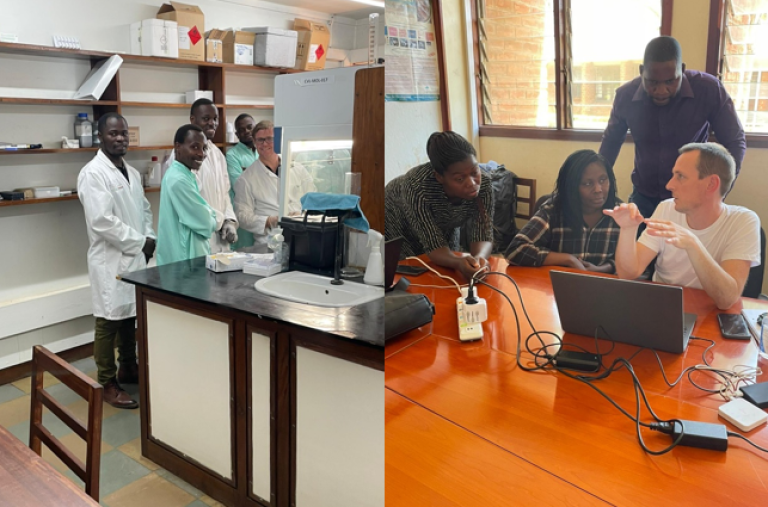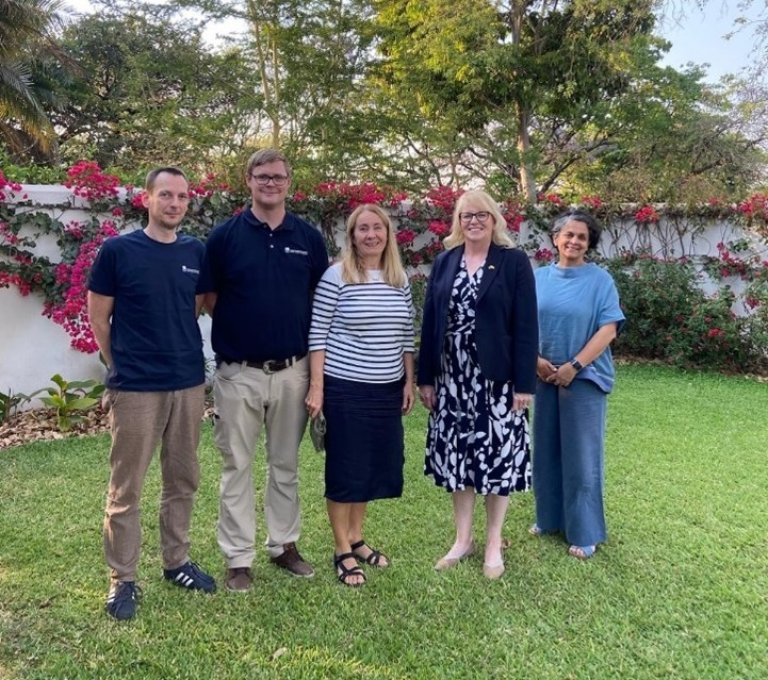Successful laboratory training boosts veterinary diagnostics in Malawi
A team of experts from the Norwegian Veterinary Institute, Siv Klevar, Jan Inge Øvrebø, and Krister Lundgård, visited Malawi from September 20 - 28 to conduct laboratory training. The training aimed to strengthen existing methodologies in molecular diagnostics and introduce new diagnostic techniques.
%20%E2%80%93%20Kopi.jpg)
The sessions were held at the Central Veterinary Laboratory in Lilongwe, as part of the project “One Health – Controlling Zoonotic Diseases and Antimicrobial Resistance in the Milk Value Chain in Malawi, Ethiopia, and Tanzania”. This initiative is funded by the Norwegian government through an agreement between Norad and the Norwegian Veterinary Institute.

The training focused on building capacity in three key areas:
- Application of modern diagnostic techniques
- Strengthening master data management
- Implementing laboratory quality systems to ensure reliable data governance
In Lilongwe, 12 trainees participated in an intensive refresher course on conventional molecular diagnostics, complemented by the introduction of advanced techniques, such as quantitative PCR (qPCR). In parallel, a dedicated training on Quality Management Systems (QMS) was delivered to support the implementation of robust laboratory practices.
.jpg)
As part of the project’s broader support, a Serology Unit was established at the Blantyre laboratory. Trainees (7) were introduced to serological methods, and new equipment was installed.
For the first time, the laboratory is now equipped to perform ELISA diagnostics for animal diseases in milk and blood, marking a significant advancement for regional veterinary services. Further training is planned to continue strengthening the team’s capacity.
.jpg)
.jpg)
This initiative responds to requests from local partners for deeper collaboration and knowledge transfer in animal diagnostics. It reflects the Norwegian Veterinary Institute’s long-term commitment to improving animal health diagnostics and promoting sustainable livestock development in Malawi.
The visit also provided the NVI team with valuable insights into notifiable diseases with major impacts on both animal and/or human health, such as Brucellosis, Foot and Mouth Disease, and Rabies, contributing to improved food security and public health.

During the visit, the delegation met with Embassy staff at the Ambassador’s residence and held discussions with the Director of Animal Health and Livestock Development at the Ministry of Agriculture. These meetings highlighted the importance of international collaboration in strengthening veterinary diagnostics and enhancing animal health services.